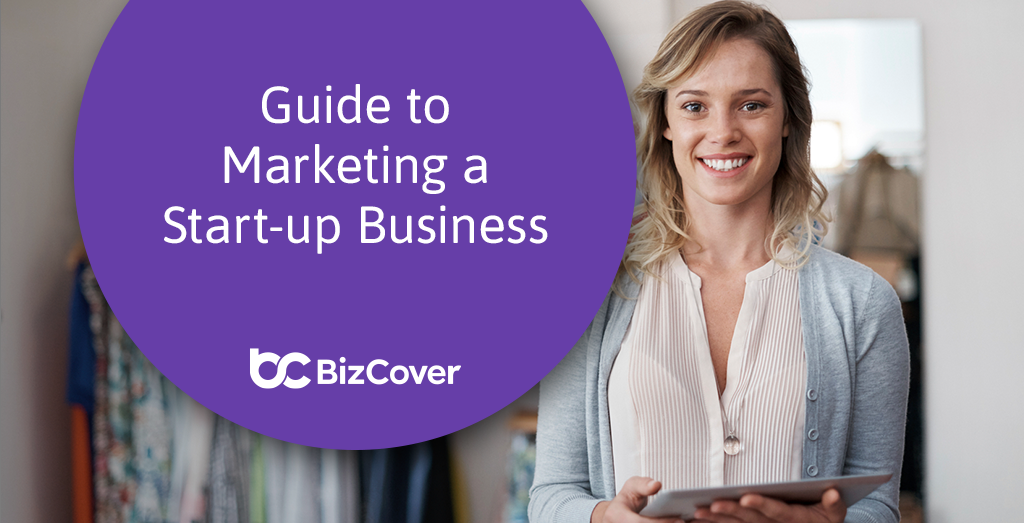9 startup marketing strategies that work
Starting your own business can be difficult, especially in today’s hyper competitive digital era. Competition is rife, and the stakes are high. To succeed, start-up business owners can benefit from having a business marketing plan to help them stand out from the pack and attract new customers.
When considering how to market your business, a well-considered marketing plan can be the ace in the hole that can take your promising start-up to the next level. With the right small business marketing strategy, a start-up can elevate its visibility and encourage consumers to purchase their products or services.
A great marketing plan can also generate a lot of buzz for a start-up and help it rise above its competitors by positioning the brand as a unique proposition that potential customers cannot get from anywhere else.
Creating a thorough marketing strategy is not always easy, but it’s certainly not impossible either. It requires time, strategic thinking, and effort. So, what are the steps in marketing a start-up? Read on to find out more.
1. Define your USP
Every business, start-ups included, has its own ‘unique selling proposition’, also known as a ‘USP’. A USP differentiates a company and brand from its competitors and gives potential customers a compelling reason to buy from a business. It’s the ‘special sauce’ that defines your business and sets it apart from your competitors.
By understanding and creatively articulating the USP for your start-up, you will have the foundational messaging and language that will inform and drive your marketing activity and define how you will engage your target audience.
2. Where to start with marketing your start-up?
Now that you have your USP and related messaging locked in, you can use them across all of your marketing activities. The following are a selection of strategic marketing activities that can help grow a start-up business such as yours, which you may consider for your marketing plan to raise awareness for your start-up.
3. Create compelling content
We are living in the era of content marketing. Successful business owners and brands understand the power of content marketing in business and know that content marketing is one of the most effective ways to market a business, product, or service organically – and for little to no cost. Content marketing aims to attract new customers, build engagement with current customers, and build a start-up’s reputation as a thought leader in its industry.
Content marketing can take many forms – Q&A interviews, blogs, case studies, images and illustrations, videos, podcasts, or any other type of media in digital or physical form. Creating great content is a long-term strategy that will continue to benefit a start-up as time goes on. Start-ups that invest in content marketing can engage their audience and encourage them to become brand advocates.
4. Invest in video marketing
Video is one of the most effective marketing activities of all because it is arguably the most engaging and easy to digest form of content marketing. As such, video marketing can be a great way to engage and build a strong connection with your audience. When creating video content for marketing your business the three golden rules are:
- make it short;
- make it relevant;
- make it to the point.
If you haven’t done so yet, create a YouTube account for your business to house your company videos. From there, you can share your video content on your social media pages and embed the footage on your company’s website. Tik Tok can also be an effective platform for sharing short, informal video content to drive engagement.
5. Embrace social media
Today social media offers a range advertising and content marketing options for businesses, while also enabling brands to engage directly with potential and existing customers. Every time a customer interacts with a brand’s social media posts, it shows that they are interested in what a brand stands for.
High social media engagement strengthens a business’s relationship with its customer base, builds brand loyalty, and increases the chances of word-of-mouth referrals. If your business isn’t already engaged in social media marketing, the rule of thumb for social media marketing is to post regularly – daily, if possible – on each of the main social media platforms. And if you operate a B2B business, your business may benefit from including LinkedIn in your social media marketing.
6. Leverage on-site strategies
Start-up owners can use their company website to market their services and attract more customers. Indeed, your company website can and should be one of the most effective marketing assets for your business – provided it is of high-quality in terms of design and content.
As the owner of a start-up business, you can use your company website to collect information from visitors and potential customers via surveys and lead generation forms. Doing so can provide key insights that can help you to better understand who your customers are and how your business can help them.
If you’ve used a template design for your company website, you may consider engaging a web developer to review your site and recommend where improvements can be made for a better user experience. This can be key, because having a well-designed website that is rich in content will make it easier to attract and engage potential new customers.
7. Up your public relations game
Public relations can be effective for gaining exposure and building credibility, but it needs to be carefully and strategically considered. Once your PR goals are clear, it’s time to create your PR plan, which will include include writing press releases, pitching stories to journalists, and building relationships with key members of the media.
8. Email marketing
Email marketing can be a great way for start-ups to reach their target market. It’s low-cost, helps you capture key information about your audience, and ensures that you can push your message far and wide.
However it’s not as easy as simply drafting and sending an email. Before sending your first email marketing campaign or e-newsletter, consider developing an email marketing strategy to guide your email campaigns.
9. Digital advertising
One final effective marketing strategy that start-ups can use to bring in new customers is paid digital ads. Paid online ads can increase the visibility of your brand on social media, blogs, and other places where people go to find new and exciting content.
Paid ads can be used to raise awareness of your products or services, bring in new customers, and increase sales. When it comes to digital advertising, there are many levers you can pull, from paid ads such as Facebook ads, Google AdWords, or Instagram ads, to name a few. Start-ups can also use paid ads to drive traffic directly to their website by creating landing pages that encourage potential customers to purchase their products and services.
While traditional marketing strategies remain effective, in 2023 start-up business owners now have many digital tactics they can employ to market their business, engage their customers, and drive more sales.
How BizCover helps small businesses grow
A key facet of succeeding as the owner of your own small business in Melbourne, or in anywhere else in Australia, is ensuring that your business can endure long-term. And a key tactic for doing just that is actively reducing the risks to your business.
BizCover makes purchasing your business insurance* in Melbourne quicker and simpler than ever – and without the hassle you may have come to expect from business insurance providers.
Our online platform lets small business owners compare competitive business insurance quotes from leading insurers online and purchase their business insurance in less than 10 minutes – without the paperwork, and without the drama.
Common types of business insurance that you may consider for your new business include:
Professional Indemnity insurance: Protects your business from losses arising out of acts, errors and omissions from a wide variety of services.
Business Insurance: An insurance package designed to provide cover for your business contents, stock, tools and commercial premises when an insured event occurs.
Public Liability insurance: Public Liability insurance protects you from claims and supports your profitability in the event of a cyber breach or attack. If your business is based in Victoria, visit our dedicated Public Liability insurance Victoria webpage to compare competitive quotes from leading insurers.
Cyber Liability insurance: Cyber Liability insurance is a type of business insurance which protects your business against both the legal costs and expenses related to cybercrime incidents.
Visit our dedicated online destination for small business insurance to compare competitive business insurance quotes in Melbourne, get covered in just 10 minutes, and get back to business. If you prefer to speak with us, you can reach our friendly team on 1300 920 867.
Compare competitive business insurance quotes, get covered in just 10 minutes, and get back to business. If you prefer to speak with us, you can reach our friendly team on 1300 920 867.
This information is general only and does not take into account your objectives, financial situation or needs. It should not be relied upon as advice. As with any insurance, cover will be subject to the terms, conditions and exclusions contained in the policy wording.
© 2022 BizCover Pty Limited, all rights reserved. ABN 68 127 707 975; AFSL 501769
ABN 68 127 707 975; AFSL 501769
This information is general only and does not take into account your objectives, financial situation or needs. It should not be relied upon as advice. As with any insurance, cover will be subject to the terms, conditions and exclusions contained in the policy wording. © 2025 BizCover Limited.





